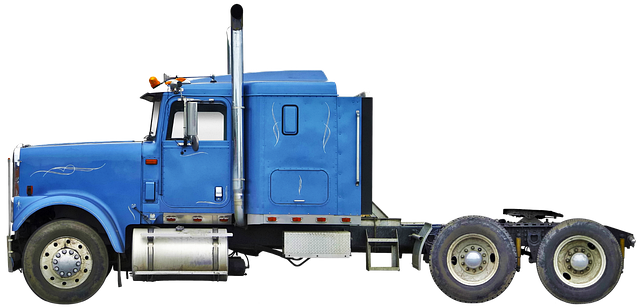Small fleet owners can secure affordable insurance by understanding their operational needs and leveraging tailored packages from insurers. Essential coverages include liability, cargo, and physical damage protection, often bundled at reasonable rates. Strategies to reduce costs involve policy bundling, vehicle safety features, clean driving records, low mileage, and part-time use. By carefully considering these options, shopping around, and implementing fleet management tools, operators can secure comprehensive yet budget-friendly insurance for their business.
In today’s competitive landscape, balancing affordability with comprehensive insurance needs is crucial for small fleet operators. With rising operational costs and increasing regulatory pressures, securing adequate protection without breaking the bank is a complex task. This article guides you through understanding the unique insurance requirements of small fleets, exploring strategies to obtain budget-friendly coverage, and delving into essential types of insurance policies, such as liability, cargo, physical damage, and fleet discounts, to maximize savings on cost-effective policies.
Understanding Small Fleet Insurance Requirements

Small fleet owners often face a delicate balance when it comes to insurance—they want comprehensive protection for their vehicles and cargo but also need to keep costs as low as possible. Affordable insurance for small fleets is achievable by understanding the unique requirements of your operation. Firstly, assess the types of coverage needed; this typically includes liability to protect against third-party claims, cargo insurance to safeguard valuable goods, and physical damage protection for accidents or natural disasters. Many insurers offer packages tailored for small fleets, incorporating these essential coverages at a reasonable price.
Additionally, exploring discounts can significantly reduce costs. Fleet managers can take advantage of various discounts by bundling policies, implementing safety features in vehicles, or maintaining a clean driving record. Some insurance providers also offer special rates for low-mileage drivers or those who use their vehicles only part-time. By carefully considering these options and shopping around for the best deals, small fleet operators can secure comprehensive yet budget-friendly fleet insurance to safeguard their business and keep operations affordable.
Strategies for Securing Budget-Friendly Coverage

Securing budget-friendly coverage for your small fleet doesn’t have to be a daunting task. One effective strategy is to compare quotes from multiple insurance providers, as rates can vary significantly. Look for companies that specialize in insuring small fleets; they often offer tailored packages with competitive prices. Bundling different types of insurance policies, such as liability and cargo coverage, can also lead to substantial discounts. Many insurers provide fleet management tools and safety programs that promote cost savings by reducing claims and accidents. These programs may include driver training, maintenance reminders, and telematics devices that monitor driving behavior.
Additionally, consider the specific needs of your fleet. Physical damage insurance is essential for protecting vehicles from accidents or natural disasters, but you can customize coverage levels based on your operations. For instance, if your fleet primarily transports dry goods with minimal risk of spoilage, basic cargo insurance might suffice. Fleet discounts are another way to save money; these can be available through trade associations, employee referral programs, or loyalty incentives. By implementing these strategies, small fleet owners can achieve a delicate balance between comprehensive insurance protection and affordable rates.
Exploring Essential Types of Insurance for Fleets

Small businesses looking to maintain their operations and protect their investments need to explore essential types of insurance for fleets. Affordable insurance for small fleets isn’t just about saving money; it’s about finding policies that offer comprehensive coverage tailored to their specific needs. This includes liability coverage, which protects against claims arising from accidents or damage to other vehicles or property, as well as cargo insurance, crucial for safeguarding the value of goods in transit.
In addition to these core elements, budget-friendly fleet insurance may include physical damage coverage, which helps cover repairs or replacements in case of vehicle mishaps, and various discounts that can significantly reduce premiums. By understanding what’s included in basic policies and negotiating based on their unique operational requirements—such as driving history, vehicle type, and mileage—business owners can secure cost-effective fleet policies that balance affordability with adequate protection.
Maximizing Savings on Cost-Effective Policies

When managing a small fleet, keeping operational costs low is paramount. Affordable insurance for these fleets doesn’t have to mean sacrificing comprehensive coverage. By strategically choosing your policy options and leveraging available discounts, it’s possible to maximize savings while ensuring adequate protection. Opting for tailored liability coverage and cargo insurance provides essential safeguard against financial losses without breaking the bank.
Many insurers offer significant fleet discounts that can substantially reduce premiums. Bundling physical damage insurance with other coverages often proves cost-effective. Additionally, evaluating your risk profile and adopting safety measures to minimize accidents can lead to substantial savings on your budget-friendly fleet insurance.
When balancing affordability with comprehensive insurance needs for your small fleet, a strategic approach is key. By understanding specific requirements, exploring essential types of coverage like liability and cargo insurance, and taking advantage of available discounts, you can secure budget-friendly fleet insurance without sacrificing protection. Opting for cost-effective policies not only meets financial goals but also ensures your trucking operations are safeguarded against potential risks, allowing for a smoother journey ahead.
